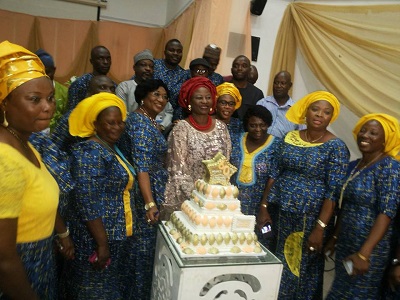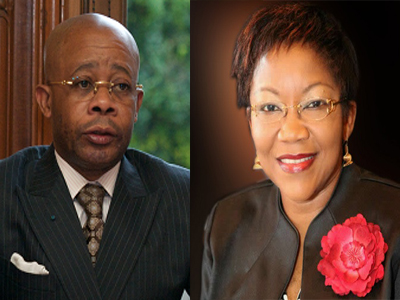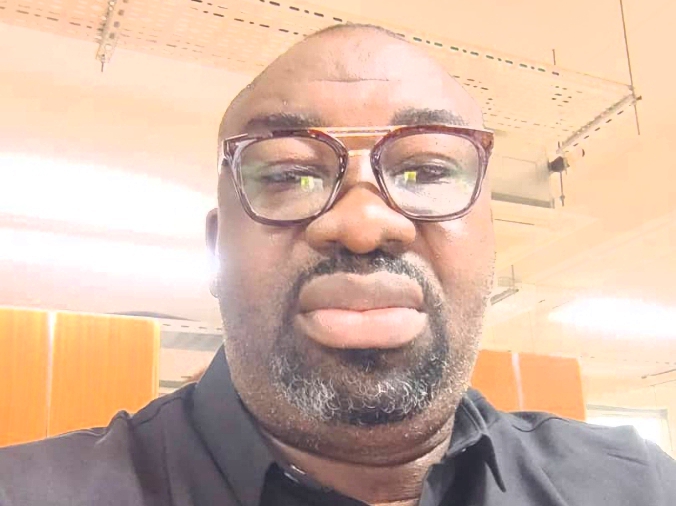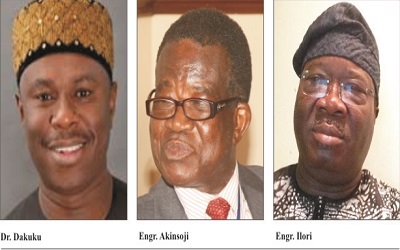CTN To Boost Customs, NPA And NIMASA’s Revenue- Hassan Bello
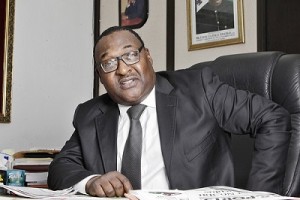
The Executive Secretary of the Nigerian Shippers’ Council, Barr. Hassan Bello recently had a media parley and MMS Plus was there to bring you the management’s views on several pertinent maritime issues even as the Shippers’ Council boss unveiled some of the Council’s plans and their modest achievements.
Enjoy it:
The Role Of Nigerian Shippers Council
We are looking at the maritime industry in terms of its economic relevance and we have had several engagements with stakeholders as we are doing today with the press. The Ikorodu Terminal is one that has generated several questions among stakeholders and it was a journalist that suggested that we should go there and find out what was happening and we went.
Another issue is the hike in Customs duty and the exchange rate. It used to b e N197 to a dollar and now it’s over N300 to a dollar, so we had a meeting with the Central Bank of Nigeria (CBN) and the CBN is going to meet with the Customs to address the issues.
Sometimes, we are not even aware of some of the challenges in the industry but journalists always bring them up and that is why at the Nigeria Shippers’ Council, we always seek to maintain a good relationship with journalists.
The Shippers’ Council is an intervention agency, so that there would be a balance among the providers of port service and the users. Service providers such as the carriers, shipping companies, financial institutions, etc are always going up against the shippers but we want to correct that imbalance because it is only when we do that we would have the maritime industry make meaningful contribution to the country. If somebody is cheated, perhaps somebody has imported 20 transistor radios for example and his goods were stolen or he got only 8 out of the 20, which means the whole business has crashed. He may not go to import again. Hence, the need for balance and equality and that is where the Shippers’ Council role lies.
The Nigeria Shippers’ Council is to advice the government of the nation through the Minister of Transportation on matters relating to shipping, freight rates, availability of shipping space, frequency of sailing, class and quality of vessels, port services and other issues.
We also engage other stakeholders in the industry because synergy is very important and we carry reforms through the stakeholders. We intervene nationally and internationally on matters affecting shipping generally. For road transport operation we engage associations such as; Association of Maritime Truck Owners (AMATO), Road Transport Employers Association of Nigeria (RTEAN), National Association of Road Transport Owners (NARTO), etc. We have regular interactions with them because if there is going to be a change or reform in the road transportation system they would have to be carried along especially with regards the cost.
Port Reforms
We are trying to make reforms on the trucking system. Most of the trucks found in the port are so rickety that it is a shame that they are allowed to go into the port. We are carrying out a holistic review on this issue. We are also working with the National Automation Council (NAC) to provide soft loans to replace these trucks.
We are trying to ensure that there is modern infrastructure in our ports. We cannot continue to be primitive and the Nigerian Shippers’ Council has discussed some of these ideas with the Minister of Transport, Hon. Rotimi Amaechi and the Nigerian Ports Authority (NPA) would also run with the idea. There is also a dire need for us to introduce these modern systems of operations to the new deep-seaports in Lekki and Badagry so that we don’t repeat the same mistakes we made in the past. Our infrastructure must be modern.
The ports all around the world are vital gateways that lead to exchange of economic fortunes. Hence, there is need for proper linkage between the sea, rail, roads and the dry ports. Today, I’m glad to tell you that the Kaduna dry port has come onboard. The Kaduna Inland Port is a port of origin and a port of destination as well. This development would reduce the congestion in the Lagos ports and there would also be a boost in the economic activities where these dry ports are located. We also have similar ICD projects in Maiduguri, Jos, Isiala-Ngwa (Abia State) and Ibadan.
Recently, the Minister of Transportation Hon. Rotimi Amaechi had a meeting with the ICD concessionaries and they are bringing technical partners to facilitate the process. We are also going to review the concession to make sure that all the obligations of the concessionaries are met within the given period of the Nigerian Shippers’ Council.
Truck Transit Park (TTP)
We are also looking at Truck Transit Parks (TTP) which is another infrastructure on its own. This is a park off the highway where Trailers and Trucks can park. There would be hotels or hostels, fuel stations, restaurants and other facilities such as vehicle repair workshops. We have been given lands in Kogi, Kaduna and Enugu for developments of Truck Transit Parks in these areas and the state governments fully welcomed the idea. This will also guarantee the security of our cargo and re-humanize our truck drivers because most of these drivers don’t have a good place to stay. We are also working with other stakeholders like the Federal Road Safety Corps (FRSC) in the TTP which also be an avenue to generate revenue.
NSC As Port Economic Regulator
As port economic regulator, we are to address the rot in the port. The ports were concessioned without a monitor which was a ghastly mistake. When you privatize, you must have a monitor or a referee who will regulate the transactions. The idea of port concession was revolutionary and commendable because we have seen the efficiency of the system. Turnaround time used to be very long but the emergence of the private sector has brought speed in the turnaround time.
Even though we emerged as port economic regulator eight (8) years after the concession, we have been able to bring sanity and everybody knows that there is a new Sheriff in town. One of the things we are trying to stabilize is the tariff. Nigerian Ports are very expensive and we want to ensure that these tariffs are not arbitrarily levied on people. We want to ensure that there is a process. Unfortunately, as some of you are aware we have had several court cases for over four years and this has hindered our development.
We have said repeatedly that the ports must be automated. We can’t have physical presence at the ports everywhere. This would be a breeding ground for corruption, inefficiency, delays and chaos. Our ports must be friendly and efficient. Efficiency of ports attracts cargoes. You can’t force people to patronize your ports. You achieve this by providing the right facilities, guaranteeing quick turnaround time, facilities efficiency, automation, etc.
We have two important instruments with which we gauge the efficiency of the ports. One of them is the synergy with other stakeholders because the synergy between the Customs, Freight Forwarders, SON, and other stakeholders would lead to efficiency of the port.
Standard Operating Procedures (SOP) and Ports Service Support Portal (PSSP)
The other thing is to ensure there is a unified Standard Operating Procedure (SOPs) for agencies operating in the port. Many agencies at the port don’t have SOPs. People just go to the port to do whatever they like. For example when a vessel arrives, how many people are supposed to go onboard the vessel? You find about five agencies while there are supposed to be only two agencies that have the right internationally to go onboard the ship.
Today we have the SOP for the agencies at the ports. The initiating was launched by the Vice President, Prof. Yemi Osinbajo about four weeks ago. We also have the ICPC as partners which will bring about the issue of enforcement. All the Chief Executive Officers (CEOs) of these organizations have signed to affirm that they are going to abide by the SOP. The effect of this SOP will be to scrutinize the port and it was as a result of a study carried out by the United Nations Development Programme (UNDP) to find out which ports have problems and they found out that Nigerian ports had several problems because there was no streamlined SOP for the agencies at the port. We also have the Ports Service Support Portal at the Shippers’ Council. We developed a portal where people can make their complaints and track the treatment of the complaint. The SOP and Complaints portal would help to develop our port efficiency and port competitiveness.
International Cargo Tracking Notes
The International Cargo Tracking Note is a very important tool in ports activities. It is also an electronic platform where the cargo and personnel onboard vessels are monitored before it sails. This helps to prepare for the reception of the vessel as the manifest is submitted in advance and we know what is onboard the vessel before it gets to the Nigerian shores.
The ICTN is also an avenue for revenue generation and blocking revenue leakages. About 80% of the goods that come into Nigeria are under-declared as most of our shippers intentionally under-declare to pay lesser charges. We have tracked a container that was supposed to pay over N2million but made a payment of just N250, 000 and the remaining N1.75million was lost.
The Customs have also agreed to this because it would boost their revenue but we always tell Customs that it is not about revenue generation but trade facilitation. Once you have mechanisms for trade facilitation by ensuring ports are automated, it’s like shinning the light on your ports and the revenue would come. The same thing applies to our vessels. When vessels come into Nigeria, they have to pay the government according to the weight of the gross of the registered tonnage but the weight is also under-declared sometimes. With the CTN, there will be no room for manipulation as the actual weight would be captured at the port of loading.
The emergence of ICTN would also lead to increase in the revenue of the NPA, NIMASA and the Customs. It would also stop a lot of things like smuggling of firearms and dangerous cargoes. There is also an application of this in the crude oil because the Liquefied Natural Gas (LNG) has registered under the scheme.
ICTN also ensures a better data bank as we would know exactly what has come into the country which will help us plan for the future.
…to be continued next week



